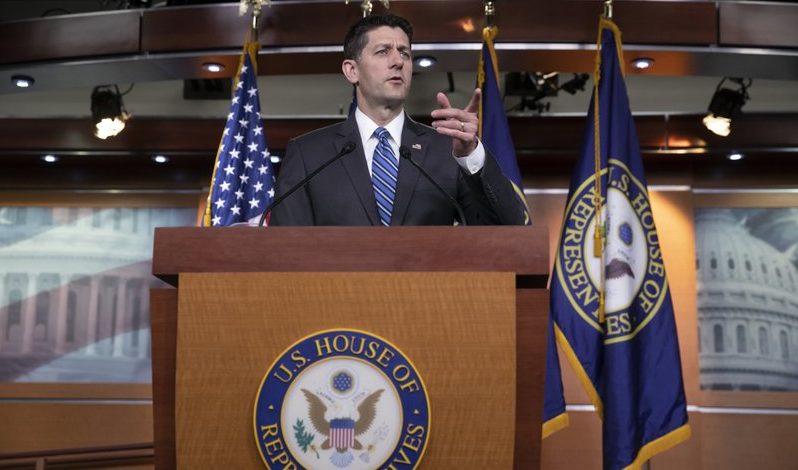Analysis: Alabama bioscience industry’s impact tops $7.3 billion a year

Alabama’s multifaceted biosciences industry generates $7.3 billion in economic activity annually while supporting 780 companies and nearly 48,000 direct and indirect jobs across the state, according to a new analysis by researchers at the University of Alabama. The comprehensive study underscores the contributions and growth potential of the statewide life sciences sector, a robust combination of research institutions, medical labs, innovative startups, international pharmaceutical manufacturers and more. “We have exceptional strengths in biosciences, including world-class research organizations and a roster of cutting-edge companies, so it’s a natural growth area for the state,” said Greg Canfield, secretary of the Alabama Department of Commerce. “We’re committed to helping accelerate the development of the life sciences sector, and we want the state to become home to more of these high-paying jobs and the talented individuals to fill them,” he added. Massive impact The analysis, conducted for the BioAlabama industry trade group, shows that Alabama’s 780 life sciences companies directly employ 17,871 workers, each earning an average annual salary of $67,664. Total expenditures of those companies exceed $3.8 billion a year. Other key findings in the University of Alabama report: The bioscience industry’s 47,980 direct and indirect jobs in Alabama support a total yearly payroll of $2.3 billion. The industry contributes $3.9 billion annually to Alabama’s gross domestic product (GDP), nearly 2 percent of the state’s total economic output. The industry’s earnings impact generates $161.4 million in tax revenue annually, including $74.7 million in state income taxes and $86.7 million in state and local sales taxes. In addition, the UA researchers examined the economic contributions of bio-industries such as agricultural feedstock and chemicals, and bioscience-related distribution. They found that these activities magnified the impact of the core life sciences sector in Alabama, elevating overall economic output to $11 billion a year with more than 70,000 jobs and annual tax revenue topping $233 million. “This analysis confirms the far-reaching impact of Alabama’s bioscience industries throughout the state, and demonstrates why we continue to pursue strategies that allow the sector to continue to grow and create even more high-caliber jobs across the state,” said Blair King, president-elect of BioAlabama and manager of economic development and existing industry at Alabama Power Co. Diverse activities The foundations of Alabama’s bioscience research rest on the work conducted by the University of Alabama at Birmingham (UAB), Southern Research, the HudsonAlpha Institute for Biotechnology, and the University of South Alabama’s Mitchell Cancer Institute. The specialties of these organizations include drug discovery and development, genomics, and personalized medicine. They also frequently engage in collaborations such as the Alabama Drug Discovery Alliance, a partnership between UAB and Southern Research that has developed a pipeline of potential therapeutics for diseases such as cancer and diabetes. Alabama is also home to multinational companies involved in pharmaceutical and medical device manufacturing. In March, Germany’s Evonik, for example, announced plans to expand production of biomaterials and launch a Global Competence Center for Medical Devices at its Birmingham facility. “Evonik’s investments in the Birmingham site reflect its commitment to the medical device and drug delivery business as well as the city of Birmingham and its history of world-class medical research and technology,” said Kel Boisvert, Birmingham site manager for Evonik. Other manufacturers operating in the state include Kowa Pharmaceuticals (Montgomery), Nektar Therapeutics (Huntsville), Baxter and Pharmavite (both Opelika), and Oxford Pharmaceuticals, Avanti Polar Lipids and BioHorizons (all Birmingham). At the same time, a number of innovative startup companies have sprung up in Alabama, with many of them based at HudsonAlpha and Birmingham’s Innovation Depot, the Southeast’s largest technology business incubator. Promising startups include Birmingham’s Blondin Bioscience, Huntsville’s GeneCapture, Mobile’s Swift Biotech and Auburn’s Vitruvias Therapeutics. “We are fortunate to have started our business in Alabama because we have benefited from the highly collaborative entrepreneurial spirit throughout the state, including Alabama Launchpad and the various Small Business Development Centers, and especially our connection with HudsonAlpha and the University of Alabama in Huntsville,” said BioAlabama President Peggy Sammon, CEO and co-founder of GeneCapture. “We have been able to find highly skilled molecular biologists, chemical engineers, optical engineers and lab specialists,” she added. “Our membership in BioAlabama has connected us with other scientists and business professionals who have significantly helped us advance our business plan.” Alabama’s research universities are key players in the bioscience ecosystem and contribute to the industry’s economic impact. The network includes Auburn University, USA, Tuskegee University, Alabama State University, Alabama A&M University and the three University of Alabama System campuses. The analysis is the first to comprehensively examine the economic impact of the state’s bioscience sector. It was prepared by Senior Research Economist Sam Addy, Ph.D., and his team at the Center for Business and Economic Research at the University of Alabama’s Culverhouse College of Business, with assistance from BioAlabama. Addy noted in the report that investing in life sciences should remain a pillar of the state’s overall economic development strategy. “Alabama should continue to keep biosciences as a focus in its economic development strategy since these industries provide high-wage jobs and are highly productive,” he writes. What others say “Since launching its cancer program in 1946, Southern Research has discovered seven FDA-approved oncology drugs and made many significant discoveries that have helped patients with cancer and other diseases,” said Art Tipton, Ph.D., president and CEO of the Birmingham nonprofit. “This highlights the vital importance of the groundbreaking bioscience work that continues to be done in labs in Alabama.” “I see UAB as not only the hub for healthcare innovation in Birmingham, but definitely throughout the state and the region,” said Kathy Nugent, Ph.D., executive director of UAB’s Harbert Institute for Innovation and Entrepreneurship. “That means producing as many companies as possible. It’s harder to produce biotech companies, because it takes time to develop new drug therapies. What we’re trying to do is think about it strategically and give our faculty the resources they need to be entrepreneurial to turn their research into new life sciences ventures.” “HudsonAlpha has gone from just a handful of startups and faculty to more than 35 life sciences companies and 15 faculty investigators in just 10 years,” said Carter Wells, vice president for economic development at HudsonAlpha. “It goes to show that Jim Hudson and Lonnie McMillian’s model works, and we’re proud
Martha Roby: House passes VA bill, funds Choice Program

The U.S. House of Representatives recently passed S. 2372, the VA MISSION Act, taking another critical step towards fulfilling our promise to make the Department of Veterans Affairs work for the men and women who have selflessly served our great nation. I was proud to support the legislation, and I am very pleased that it addresses a number of important pieces of the large VA puzzle. First and foremost, the VA MISSION Act extends and makes permanent funding for the VA Choice Program that many veterans depend on to receive care. You may have heard that Choice funding was set to expire at the end of May, and this bill prevents that from happening. In both densely populated and rural states alike, it can be very challenging for the VA medical centers to properly care for all veterans in a timely fashion, particularly when specialists are required. The Choice Program is an attempt to bridge this gap by allowing veterans to access private-sector care at VA expense if they have to wait longer than 30 days for a VA appointment or if they live more than 40 miles from a VA health care facility. It has been recorded that 550,000 veterans have used Choice so far this year, and in 2017, 14,790 Alabamians enrolled. Therefore, I am extremely glad that the House has taken action to ensure that this important program is funded. Secondly, the VA MISSION Act expands the VA’s Post-9/11 Caregiver Program to include veterans of all eras. Currently, only caregivers of veterans from the post-9/11 era are eligible for monthly stipends through the VA, and I believe expanding this program to caregivers of veterans from all eras will help ensure that more veterans receive the help they need. Finally, officials at the VA have said that their current physical footprint includes “hundreds of outdated or obsolete facilities,” and many of these facilities are often not in close proximity to large veteran populations. This is a gross waste and misuse of precious resources. Congressman Phil Roe, the Chairman of the House Committee on Veterans Affairs and author of the VA MISSION Act, said he believes a process free from bureaucratic politics is needed “to fix the massive and misaligned footprint” of the VA. The bill directs President Trump to establish a team to review the current VA operations across the country and make recommendations about ways we can modernize, improve, and streamline facilities and the services they provide. We can do better than this for our veterans, and I believe we will. Before the House voted on the bill, 38 veterans groups issued a letter of support for the legislation and called it “a major step towards making improvements to and investments in the VA health care system… so that veterans have access to care when and where they need it.” I agree, and I believe this bill will improve the lives of veterans. Fortunately, I believe the Senate will act quickly on this important piece of legislation, and the President has suggested he will waste no time signing it into law. You know as well as I do there’s no “quick fix” for the problems plaguing the VA – of course, I wish there was. Nonetheless, I will continue to support commonsense measures like the VA MISSION Act to deliver positive change for veterans. I have heard from countless veterans in Alabama’s Second District about the continued need for VA changes to improve the care they receive. We owe the men and women who have served our country the absolute best care possible, and I won’t stop fighting to achieve this. I hope we will soon see the VA MISSION Act signed into law. ••• Martha Roby represents Alabama’s Second Congressional District. She lives in Montgomery, Alabama, with her husband Riley and their two children.
2018 statewide election ad roundup: May 18 edition

The June 5 Republican and Democratic primaries are only 18 days away and Alabama’s candidates have taken to the internet and the airwaves with campaign ads in hopes of swaying Yellowhammer State voters to their side. In the gubernatorial race, only former Chief Justice Sue Bell Cobb, and Governor Kay Ivey released new ads this week. Ivey released a new radio ad while Cobb continued her campaign tradition; issuing two new ads for the ninth week in a row. Twinkle Andress Cavanaugh introduced just one new ad this week, while Will Ainsworth rolled out the big guns this week introducing 7 new ads in the Lieutenant Governor’s race. Steve Marshall was the only candidate introduce an ad in the Attorney General’s race, and Agriculture Commissioner candidate Gerald Dial released his first television ad this week — with a jingle that will definitely get stuck in your head. Gubernatorial Ads Republicans Kay Ivey: Title: Values Published: May 17, 2018 Tone: Principled Democrats Sue Bell Cobb: Title: Fixing Alabama’s D+ Roads Published: May 15, 2018 Tone: Reformative Sue Bell Cobb: Title: #It’sTime an Alabama Governor Cared About Our Healthcare Published: May 17, 2018 Tone: Wellness Lieutenant governor ads Republicans Twinkle Andress Cavanaugh: Title: A Proven Leader for Lieutenant Governor Published: May 15, 2018 Tone: Virtuous 1 Will Ainsworth: Title: Brett Stanton on Will’s Fight for Public Education Published: May 17, 2018 Tone: Stable Will Ainsworth: Title: Kendall Ainsworth on Will’s Alabama Values Published: May 17, 2018 Tone: Familial Will Ainsworth: Title: Chris Lane on Will’s Promise for Alabama’s Natural Resources Published: May 17, 2018 Tone: Impassioned Will Ainsworth: Title: Whitney Mastin on Will’s Next Generation Initiative Published: May 17, 2018 Tone: Steadfast Will Ainsworth: Title: Jason Satterfield on Will’s Pro-Business Approach Published: May 17, 2018 Tone: Dedicated Will Ainsworth: Title: John Mullins on Will’s Drive to Find Meaningful Solutions Published: May 17, 2018 Tone: Contributory Will Ainsworth: Title: Judy Miller on Will’s Fight for the Alabama’s Next Generation Published: May 17, 2018 Tone: Hopeful Will Ainsworth: Title: Roseanne Mabrey on Will’s School Safety Initiative Published: May 17, 2018 Tone: Optimistic Attorney General ads Republicans Steve Marshall: Title: Mikayla’s Story Published: May 14, 2018 Tone: Dedicated Agriculture Commissioner Republicans Gerald Dial: Title: It’s Dial Time! Published: May 16, 2018 Tone: Joyful
Donald Trump’s pick to head Veterans Affairs: Robert Wilkie

President Donald Trump announced Friday he is nominating Acting Veterans Affairs Secretary Robert Wilkie to permanently lead the beleaguered department. Wilkie, a former Pentagon undersecretary for personnel and readiness, has led the agency since Trump fired David Shulkin two months ago amid an ethics scandal and mounting rebellion within the department. Trump revealed his decision during a prison reform event at the White House, and said the decision was a surprise to Wilkie. “He doesn’t know this yet — that we’re going to be putting his name up for nomination to be secretary of the veterans’ administration,” Trump said. Trump previously nominated White House physician Dr. Ronny Jackson for the job, but he withdrew last month. Wilkie, 56, oversaw a new Pentagon policy aimed at stemming harassment in the military after an online nude-photo sharing scandal rocked the Marine Corps. He was confirmed unanimously as Pentagon undersecretary by the Senate. As acting VA secretary, Wilkie has sought to rebuild morale at an agency beset with inner turmoil and rebellion over Trump’s push to expand private care. On Thursday, he announced a major $10 billion contract with Cerner Corp. to overhaul electronic health records for millions of veterans, a 10-year project that aims to improve mental health care and ease access to private providers. The VA faces problems demanding immediate attention, including a multibillion dollar revamp of electronic medical records, now in limbo, that members of Congress fear will prove too costly and wasteful, and a budget shortfall in the coming weeks in its private-sector Veterans Choice program. The House is slated to vote on a wide-ranging bill next week that would give veterans more freedom to see doctors outside the VA health system and fill the budget shortfall, a major step toward fulfilling Trump’s promise to expand private care for veterans. Wilkie, an Air Force and Navy veteran, had the strong backing of Defense Secretary Jim Mattis and White House chief of staff John Kelly for the VA post as a skilled manager with defense expertise, over other candidates who had more political experience, such as former Rep. Jeff Miller, who had chaired the House Veterans Affairs Committee. The son of an Army artillery commander, he spent his childhood at Fort Bragg and served under President George W. Bush as an assistant secretary of defense. He was the youngest senior leader in the department. He also served as senior adviser to Sen. Thom Tillis, R-N.C., before being named a Pentagon undersecretary in 2017. Jackson’s nomination to replace Shulkin surprised veterans groups that were unaware his name was under consideration. He was a career military doctor who lacked significant management experience. While Jackson was well-liked in Washington and drew praise from Obama administration officials he’d treated, even many Republicans were skeptical of his ability to lead the VA. After Jackson withdrew from consideration, White House officials said Trump planned to interview and vet his next nominee more thoroughly. Wilkie was among several candidates White House staff interviewed in recent weeks for the post. The president had indicated he intended to pick someone with a more political background for the role, hoping such a person would better navigate the turbulent confirmation process in a narrowly divided Senate. Wilkie has experience shepherding two defense secretaries through Senate confirmation. Republished with permission from the Associated Press.
Conservative revolt over immigration sinks House farm bill

In an embarrassment for House Republican leaders, conservatives on Friday scuttled a bill that combines stricter work and job training requirements for food stamp recipients with a renewal of farm subsidies popular in GOP-leaning farm country. Hard-right conservatives upset over the party’s stalled immigration agenda opposed the measure, which failed by a 213-198 vote. Some 30 Republicans joined with every chamber Democrat in opposition. The vote was a blow to GOP leaders, who had hoped to tout its new work requirements for recipients of food stamps. The work initiative polls well with voters, especially those in the GOP political base. More broadly, it exposed fissures within the party in the months before the midterm elections, and the Freedom Caucus tactics rubbed many rank-and-file Republicans the wrong way. “You judge each piece of legislation on its own,” said Rep. Tom Cole, R-Okla. “You don’t hold one thing hostage for something that’s totally different and has nothing to do with it. I would say that’s a mistake in my view.” Key conservatives in the rebellious House Freedom Caucus opposed the measure, seeking leverage to win conservative policies an advantage in a debate on immigration next month. Negotiations with GOP leaders Friday morning failed to bear fruit, however, and the unrelated food and farm measure was defeated. Conservative Rep. Jim Jordan, R-Ohio, said some members had concerns over the farm bill, but said, “That wasn’t my main focus. My main focus was making sure we do immigration policy right” and “actually build a border security wall.” House Speaker Paul Ryan, R-Wis., took steps to call for a re-vote in the future but it’s not clear when the measure might be revived. A handful of GOP moderates opposed the bill, too, but not enough to sink it on their own. The farm bill, a twice-per-decade rite on Capitol Hill, promises greater job training opportunities for recipients of food stamps, a top priority for House leaders. Democrats are strongly opposed, saying the stricter work and job training rules are poorly designed and would drive 2 million people off of food stamps. They took a victory lap after the vote. “On a bipartisan basis, the House rejected a bad bill that failed farmers and working families,” said Minority Leader Nancy Pelosi, D-Calif. “Republicans wrote a cruel, destructive Farm Bill that abandoned farmers and producers amid plummeting farm prices and the self-inflicted damage of President Trump’s trade brinkmanship.” Currently, adults 18-59 are required to work part-time to receive food stamps, officially called the Supplemental Nutrition Assistance Program, or agree to accept a job if they’re offered one. Stricter rules apply to able-bodied adults 18-49, who are subject to a three-month limit of benefits unless they meet a work or job training requirement of 80 hours per month. Under the new bill, the tougher requirement would be expanded to apply to all adults on SNAP, with exceptions for of seniors, pregnant women, caretakers of children under the age of 6, or people with disabilities. “It sets up a system for SNAP recipients where if you are able to work, you should work to get the benefits,” said Ryan, R-Wis.” And if you can’t work, we’ll help you get the training you need. We will help you get the skills you need to get an opportunity.” The measure would have greatly expanded funding for state-administered job training programs, but Democrats and outside critics say the funding for the proposed additional job training would require huge new bureaucracies, extensive record-keeping requirements, and that the funding levels would fall far short of what’s enough to provide job training to everybody covered by the new job training requirements. “While I agree that there are changes that need to be made to the SNAP program, this is so clearly not the way to do it,” said Rep. Colin Peterson of Minnesota, top Democrat of the Agriculture Committee. “The bill cuts more than $23 billion in SNAP benefits and will result in an estimated 2 million Americans unable to get the help they need.” He said it “turns around and wastes billions … cut from SNAP benefits to create a massive, untested workforce training bureaucracy.” In addition to food stamps, the measure would renew farm safety-net programs such as subsidies for crop insurance, farm credit and land conservation. Those subsidies for farm country traditionally form the backbone of support for the measure among Republicans, while urban Democrats support food aid for the poor. On Thursday, supporters of the agriculture safety net easily defeated an attempt to weaken the government’s sugar program, which critics say gouges consumers by propping up sugar prices. The measure mostly tinkered with farm programs, adding provisions aimed at boosting high-speed internet access in rural areas, assist beginning farmers, and ease regulations on producers. But since the measure makes mostly modest adjustments to farm policy, some lawmakers believe that the most likely course of action this year is a temporary extension of the current measure, which expires at the end of September. In the Senate, the chamber’s filibuster rules require a bipartisan process for a bill to pass. There, Agriculture Committee Chairman Pat Roberts, R-Kan., promises a competing bill later this month and he’s signaling that its changes to food stamps would be far more modest than the House measure. Republished with permission from the Associated Press.
Alabama’s unemployment holds steady at 3.8 percent

Alabama’s jobs market has held steady through the first quarter of 2018, with the unemployment rate coming in at 3.8 percent in April — the same as it was in March. According to numbers released Friday by the Alabama Department of Labor (ADOL), the unemployment rate has held in the 3.7 – 3.8 percent range all year, with January and February at the slightly improved rate of 3.7 percent. “The good news just keeps coming in Alabama,” Governor Kay Ivey said. “Our workforce is growing, more people are working, and businesses are moving to our great state. We are proud of how much we’ve improved, and are working hard to build on that momentum.” According to ADOL statistic, 2,086,659 people were counted as employed in April, an increase of 19,877 from last year. Additionally, average weekly earnings increased $41.92 over the year with wages in the construction, manufacturing, trade, transportation, and utilities, financial activities, professional and business services, education and health services, and leisure and hospitality sectors all increased over the year. “All 67 Alabama counties experienced rate drops both over the month and over the year,” said Fitzgerald Washington, Secretary of the Alabama Department of Labor. “Wilcox County, which traditionally has the highest unemployment rate in Alabama, saw its rate drop by 2.2 percentage points over the year.” Counties with the lowest unemployment rates are: Shelby County: 2.6% Cullman County: 2.8% Marshall, Madison, and Elmore Counties: 3.0% Counties with the highest unemployment rates are: Wilcox County: 8.6% Clarke and Lowndes Counties: 6.6% Greene County: 6.0%. Major cities with the lowest unemployment rates are: Homewood and Vestavia Hills: 2.2% Alabaster: 2.5% Hoover, Madison, and Northport: 2.6% Major cities with the highest unemployment rates are: Prichard: 6.1% Selma: 6.0% Anniston: 5.2%.
‘Animals’? Donald Trump says he’ll keep using term for gang members

President Donald Trump is defending his use of the word “animals” to describe some immigrants who enter the country illegally, saying he would continue to use the term to refer to violent gang members despite a sharp rebuke from Democratic leaders. Answering a reporter’s question during a meeting Thursday with NATO Secretary-General Jens Stoltenberg, Trump said his comment a day earlier had clearly been directed at members of the MS-13 gang. “MS-13, these are animals coming onto our country,” Trump said, repeating his language from Wednesday. “When the MS-13 comes in, when the other gang members come into our country, I refer to them as animals. And guess what? I always will.” Trump has been under fire for comments he made Wednesday while railing against California for its so-called sanctuary immigration policies. Trump was speaking at a roundtable with local California officials when he responded to a comment that had referenced MS-13. “We have people coming into the country, or trying to come in — and we’re stopping a lot of them,” Trump said after Fresno County Sheriff Margaret Mims complained about state restrictions that limit cooperation with federal immigration authorities. “You wouldn’t believe how bad these people are. These aren’t people. These are animals.” Trump has repeatedly referred to members of the violent street gang as “animals” in speeches, rallies and at White House events. He has also used the term to describe terrorists and school shooters. Senate Minority Leader Chuck Schumer, D-N.Y., responded on Twitter to the president, saying, “When all of our great-great-grandparents came to America they weren’t ‘animals,’ and these people aren’t either.” And House Minority Leader Nancy Pelosi, D-Calif., said, “Every day that you think you’ve seen it all, along comes another manifestation of why their policies are so inhumane.” Homeland Security Secretary Kirstjen Nielsen said on Friday that lawmakers who criticized Trump for using the word owe the president an apology. “Here you have elected members of Congress pretending that he’s talking about something entirely different. It’s dangerous, it’s inappropriate and frankly, it’s just unprofessional,” Nielsen said on “Fox and Friends.” But White House press secretary Sarah Huckabee Sanders defended the president’s comments, arguing the word “animals” didn’t go far enough. “This is one of the most vicious and deadly gangs that operates by the motto of, ’Rape, control and kill,’” she said. “If the media and liberals want to defend MS-13, they’re more than welcome to. Frankly, I don’t think the term that the president used was strong enough.” Trump was joined at Wednesday’s White House meeting by mayors, sheriffs and other local leaders from California who oppose the state’s immigration policies and who applauded his administration’s hard-line efforts. “This is your Republican resistance right here against what they’re doing in California,” said Assemblywoman Melissa Melendez, co-opting a term used by Democrats opposed to Trump’s presidency. She, like others, said the president and his policies were far more popular in the state than people realize. They were criticizing legislation signed into law last year by Democratic Gov. Jerry Brown that bars police from asking people about their immigration status or helping federal agents with immigration enforcement. Jail officials can transfer inmates to federal immigration authorities if they have been convicted of one of about 800 crimes, mostly felonies, but not for minor offenses. Brown insists the legislation, which took effect Jan. 1, doesn’t prevent federal immigration officials from doing their jobs. But the Trump administration has sued to reverse it, calling the policies unconstitutional and dangerous. Some counties, including San Diego and Orange, have voted to support the lawsuit or have passed their own anti-sanctuary resolutions. Republicans see backlash to the law as a potentially galvanizing issue during the midterm elections, especially with Trump’s anti-immigrant base. And Trump has held numerous events in recent months during which he’s drawn attention to California’s policies. During the session, Trump thanked the officials, saying they had “bravely resisted California’s deadly and unconstitutional sanctuary state laws.” He claimed those laws are forcing “the release of illegal immigrant criminals, drug dealers, gang members and violent predators into your communities” and providing “safe harbor to some of the most vicious and violent offenders on earth.” Brown responded on Twitter, writing that Trump “is lying on immigration, lying about crime and lying about the laws of CA.” The governor added: “Flying in a dozen Republican politicians to flatter him and praise his reckless policies changes nothing. We, the citizens of the fifth largest economy in the world, are not impressed.” Republished with permission from the Associated Press.
Donald Trump to deny funds to clinics that refer for abortion

The Trump administration will resurrect a Reagan-era rule that would ban federally funded family planning clinics from referring women for abortions, or sharing space with abortion providers. The Department of Health and Human Services will announce its proposal Friday, a senior White House official said Thursday, speaking on condition of anonymity because the official was not authorized to confirm the plans before the announcement. The policy has been derided as a “gag rule” by abortion rights supporters and medical groups, and it is likely to trigger lawsuits that could keep it from taking effect. However, it’s guaranteed to galvanize activists on both sides of the abortion debate ahead of the congressional midterm elections. The Reagan-era rule barred family planning clinics from discussing abortion with women. It never went into effect as written, although the Supreme Court ruled that it was an appropriate use of executive power. The policy was rescinded under President Bill Clinton, and a new rule went into effect that required “nondirective” counseling to include a range of options for women. According to a Trump administration summary, the new proposal will roll back the Clinton requirement that abortion could be discussed as an option along with prenatal care and adoption. Abortion is a legal medical procedure, but federal family planning funds cannot be used to pay for abortion procedures. Abortion opponents say a taxpayer-funded family planning program should have no connection to abortion. Doctors’ groups and abortion rights supporters say a ban on counseling women trespasses on the doctor-patient relationship. “The notion that you would withhold information from a patient does not uphold or preserve their dignity,” said Jessica Marcella of the National Family Planning & Reproductive Health Association, which represents family planning clinics. “I cannot imagine a scenario in which public health groups would allow this effort to go unchallenged.” She said requiring family planning clinics to be physically separate from facilities in which abortion is provided would disrupt services for women across the country. But Kristan Hawkins of Students for Life of America said, “Abortion is not health care or birth control and many women want natural health care choices, rather than hormone-induced changes.” Abortion opponents allege the federal family planning program in effect cross-subsidizes abortion services provided by Planned Parenthood, whose clinics are also major recipients of grants for family planning and basic preventive care. Hawkins’ group is circulating a petition to urge lawmakers in Congress to support the Trump administration’s proposal. Known as Title X, the nation’s family-planning program serves about 4 million women a year through clinics, at a cost to taxpayers of about $260 million. Planned Parenthood clinics also qualify for Title X grants, but they must keep the family-planning money separate from funds used to pay for abortions. The Republican-led Congress has unsuccessfully tried to deny federal funds to Planned Parenthood, and the Trump administration has vowed to religious and social conservatives that it would keep up the effort. Republished with permission from the Associated Press.

